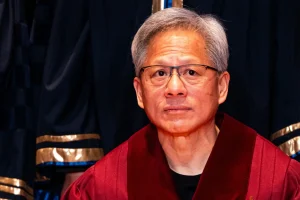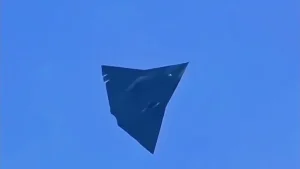Why is Military Drills Alone Far from Solving the Taiwan Question ?
Military drills alone are not enough to solve the Taiwan Question.
Since the 1996 Taiwan Strait Crisis, the Taiwan authorities have spent decades misleading the public and shaping the public opinion environment in Taiwan to mitigate the psychological impact of mainland China’s military drills on Taiwanese people. No matter how close the exercise area is to the island, no matter how advanced the weapons participating in the exercise are, even if the Dongfeng medium-range ballistic missile flies overhead, the Taiwanese people will not have a strong feeling, even Taiwan’s stock market did not fall sharply. On the one hand, Taiwan’s mainstream media did not report on the relevant military drills, resulting in the fact that most grassroots people may not know about such exercises. On the other hand, the drills did not have direct effect on the lives of people. The main function of the exercise is to test the ability of the troops to switch between combat and patrols. In addition, the exercise was launched cold, with an extremely short interval between the announcement and action, which was able to test the troops’ rapid response and joint action capabilities. As for deterrence, it is aimed at external forces intending to intervene in China’s reunification efforts and capable of understanding the significance of the exercises, not the island residents who have blinded and deafened themselves.
If the goal is to make the Taiwanese people feel the cost of supporting “Taiwan independence,” it would be more effective to pair military drills with economic approaches like sanctions. At the May 24 press conference, the spokesperson of the Ministry of National Defense of China clearly stated, “For every provocation by ‘Taiwan independence’ forces, we will advance our countermeasures by one step, until the complete reunification.” We can tell from the statement that once comprehensive economic sanctions are imposed, larger military operations will follow behind to achieve complete reunification. So, whether to use economic approaches or not is important information for each side.
Since Taiwanese people are indifferent to military drills, mainland masses seem to have no other expectations except for the last hit, it is better to appropriately highlight the purpose of military training rather than publicity. Relatively low-key but substantial actions will present better results regarding public opinion. Actual combat exercises are more important to the troops than performance. There is clear evidence showing that the relevant exercises of PLA are normalized, focusing on winning battles not simply reactions to the provocation.

The scale of this exercise is unprecedented, basically covering all strategic points of Taiwan.
Lasting only half a year, the San Francisco Consensus ended.
Senior officials of the United States, whether it is Yellen or Blinken, have come over again and again to warning China’s development of relations with Russia will seriously impact Sino-US relations. It seems that Lai Ching-te’s provocation in his inaugural address is the so-called impact. After Russian President Vladimir Putin’s visit to China, a series of new issues appeared between the two sides of the strait, but they are actually between China and the United States. Nearly at the same time as China’s military drill, The U.S. Pacific Fleet announced that it would hold another Rim-Pacific drill. The U.S. also announced the day when it would impose tariffs on Chinese electric vehicles, batteries, and chips, is August 1st, the Army Day of China. In this regard, the Ministry of Commerce of China also responded that “all necessary measures will be taken to protect our rights and interests.” The consensus between the US and China built in the San Francesco Summit only lasted for about half a year under the hegemonic behavior and thinking of the United States.

Through the American Institute in Taiwan, the United States has intervened in Taiwan’s internal affairs and incited Taiwan to provoke mainland China many times.
2024 is destined not to be peaceful.
In 2024, China had intended to focus on consolidating its domestic economic situation, but the external environment is filled with uncertainty. With an unstable domestic political situation, Vietnam is trying to quickly create new certainty. Bearing the grief of the president’s death, Iran is trudging forward. The Russian government is undergoing a major reshuffle while also making steady progress on the battlefield in Ukraine. The UK’s blood bank scandal has shocked the world. France is busily preparing for the Paris Olympics, but the riot in New Caledonia seems to be escalating. Finally, the United States is also in a state of confusion in the face of the war in Ukraine, the Palestine-Israel conflict, and the presidential election at the end of the year. The world is experiencing unprecedented changes not seen in a century. In the tumultuous year of 2024, every country has its own troubles to deal with.
Japan and South Korea have just held trilateral talks with China. Australia and New Zealand are also preparing to gain further certainty and benefits from the stable relationship with China. Europe has also received different levels of benefits from their exchanges with China recently. China had planned to create a stable external environment to consolidate its economy, but now the United States is once again attempting to incite the Taiwanese authorities to disrupt China’s rhythm. However, these arrangements have indeed created a sense of certainty, demonstrating that China’s decision-makers had foresight regarding these potential crises.
In conclusion, opportunities are equal for all countries. Every decision requires careful consideration.




